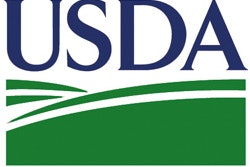WASHINGTON (AP) — The Senate Agriculture Committee on Thursday approved a half-trillion dollar farm and food plan that ends the practice of paying farmers for crops they don't grow.
The five-year bill, which would supplant the current farm act set to expire in September, also shifts the agricultural safety net to crop insurance, consolidates conservation programs and takes aim at abuses in the federal food stamp program.
The measure would cut the federal deficit by $23 billion, when compared with spending projections under the current farm bill, with $4 billion of that coming from the Supplemental Nutrition Assistance Program, or food stamps. That's accomplished by such steps as ending misuse by college students and cracking down on retailers and recipients trafficking in benefits. Food stamps, now received by more than 46 million Americans, take up about 80 percent of the spending in the bill.
The 16-5 vote was the first step in what could be an arduous road to presenting the president with a new bill before the old one expires in five months. The Senate Democratic leadership must decide how to fit the bill into a crowded floor schedule, and then the bill faces what could be considerable resistance in the House, where the Republican majority is pressing for more extensive cuts to food stamps and other farm bill programs.
Senate Agriculture Committee Chairman Debbie Stabenow, D-Mich., and the top Republican on the panel, Sen. Pat Roberts of Kansas, also must deal with a rebellion from Southern senators, who say the dramatic shift from direct payments to a system based on crop insurance and a new federal risk management program discriminates against Southern crops, particularly rice and peanuts.
As currently written, said Sen. John Boozman, a Republican from the rice-growing state of Arkansas, the bill "will have a devastating impact on Southern agriculture."
Of the five voting against the bill, four were Southern Republicans. The fifth was Sen. Kirsten Gillibrand, D-N.Y., who expressed concerns about cuts to food stamps and to changes in dairy policy.
"We realize we are not there yet," said Stabenow, who added that she had talked to Senate Majority Leader Harry Reid, D-Nev., on Wednesday about advancing the bill to the floor.
The biggest change under the bill would be the end of direct payments, which aren't tied to a farmer planting a crop and cost about $5 billion a year, replacing them with a "shallow loss" program that pays farmers when modestly decreasing yields or declining prices result in a farmer's revenue falling below historic averages.
For more serious losses, farmers would rely on crop insurance. On average, 60 percent of crop insurance premiums are subsidized by the government.






















